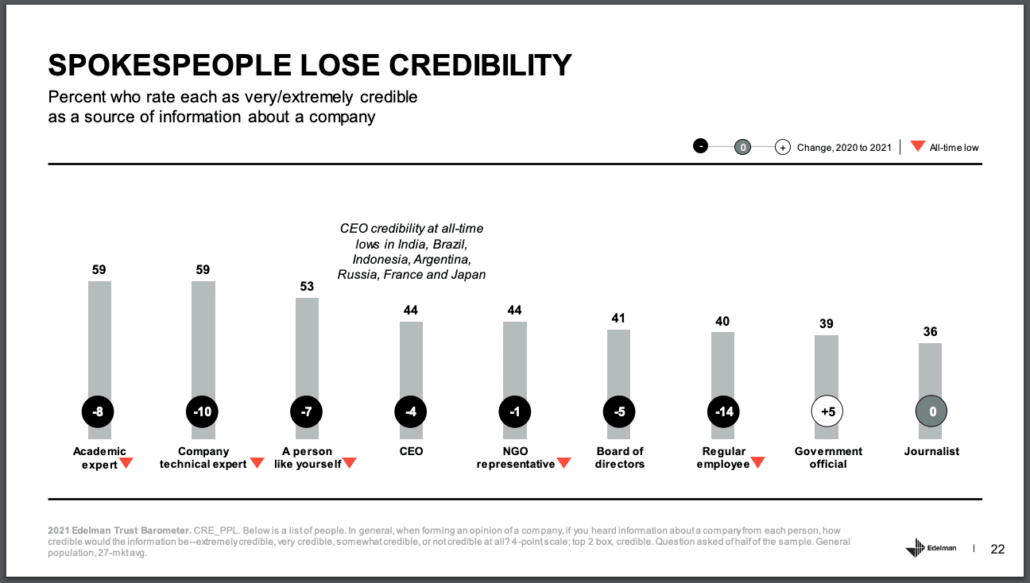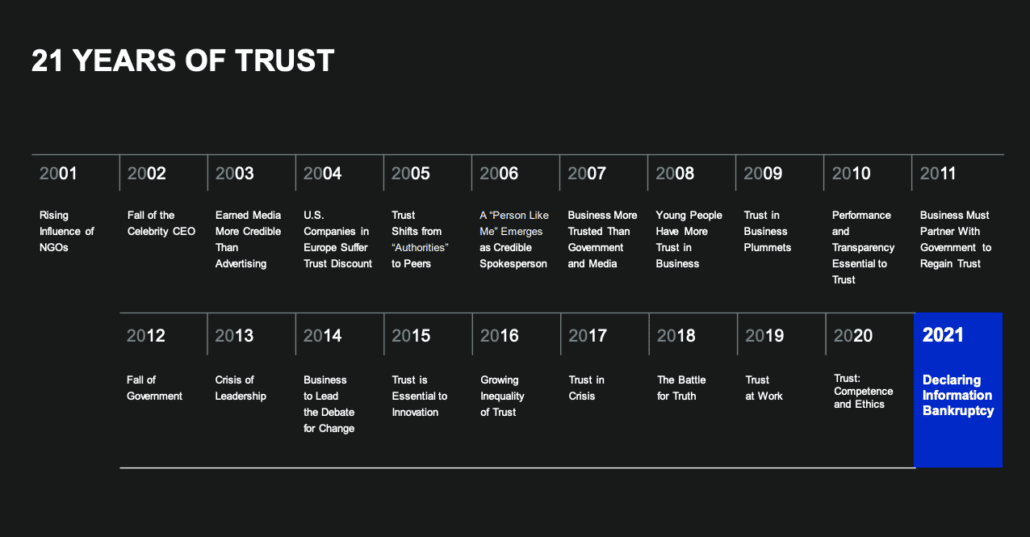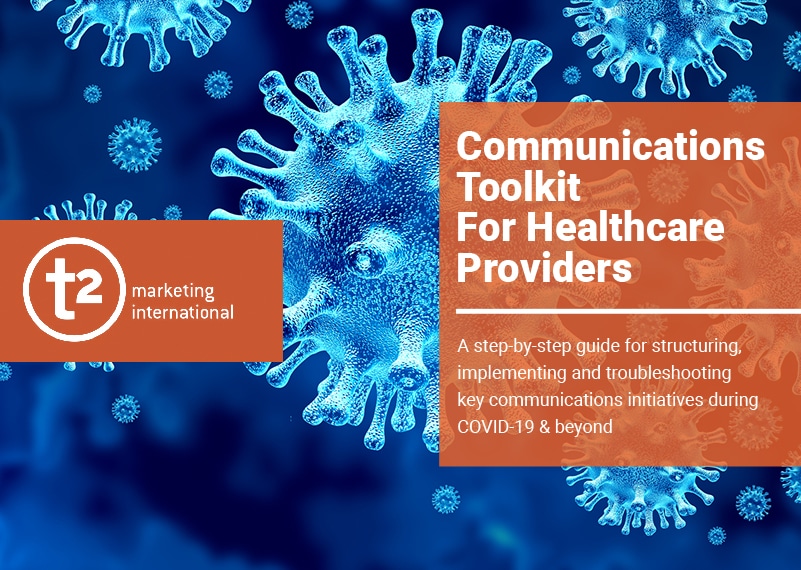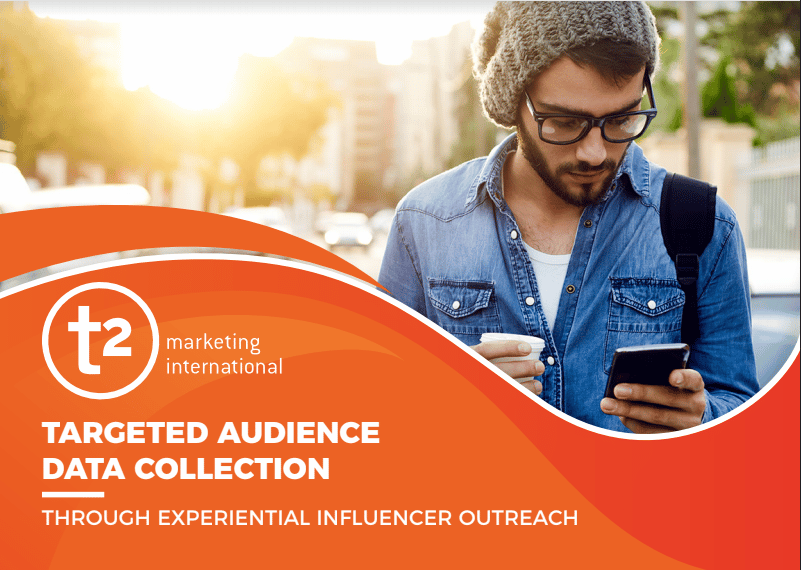Key Findings in the 2021 Edelman Trust Barometer
Every year, Edelman releases their Trust Barometer, measuring the level of trust the population has in bodies of varying authority. It’s no surprise that this year, there were some significant changes to how people see the world and where they place their trust.
While we see shifts in consumer trust focal points and factors with each passing year, there were some significant changes in 2020 due to pivotal aspects such as the racial justice movement across the world, as well as the COVID-19 pandemic. These are just a few of the highlights and points of note worth understanding in the 2021 Edelman Trust Barometer report.
The Biggest Loss Can Be Found with Trust in Government
17 of 27 countries saw significant decreases in consumer trust in government. This has been fueled in large part due to the pandemic and has been exacerbated by the spread of misinformation online (discussed below). Government has traditionally been the institution with the highest level of trust among both the informed and general public, but with the drop this year to third place among the four main organizational sources of consumer trust, businesses have taken the lead.
Business is the Most Trusted Institution
People point to businesses as the most trusted institution they have. Among businesses, NGOs, media, and government, businesses saw the largest increase in consumer trust. Simply put, people feel like employers are in a position where honesty and attentiveness have the most impact on their success, and therefore can be trusted most to put the needs and demands of employers and consumers first.
Fear Related to the Pandemic is a Major Factor in Loss of Consumer Trust
Fear was a common theme among respondents, whether related to societal tensions or the pandemic, and as a result, personal fears had a major impact on consumer trust overall. Concern over job security and job availability has resulted in a nervousness among consumers, and that is reflected in the overall drops in general consumer trust in most major segments.
Academics, Experts, and Peers See Loss in Consumer Trust
One concerning aspect with regards to both consumer trust and, to a more focused degree, the direction of business and marketing, was the all-time lows reached in consumer trust in academic experts, technical experts, and peers (a person like yourself).

How does this factor into the world of business and, to a smaller degree, marketing? Peers have long been on the rise when it comes to consumer trust. This source of information is largely why earned media and influencer marketing have exploded in recent years. This plunge to 53% of consumers indicating they trust this source can have significant repercussions in how businesses reach and connect with consumers moving forward.
Misinformation Leads to Record Lows
Misinformation in media – both traditional and to a more severe degree, social – has led to plummeting levels of trust in a number of previously reliable sources. While this has led to a greater reliance on information at a local level, we will need to assess the long-term impact on consumer trust when it comes to content found in digital and social media.
Media and Science Literacy Skyrocket
With a decrease in trust came an inverse correlation in media and science literacy. Consumers have clearly indicated that they are setting out to learn for themselves beyond any threshold set in the past. The key to continuing to see this as a positive step will be the ongoing battle against misinformation that could hurt trust in the long-term.
Safety and Training Become Keys for Employees
Due to factors such a societal tensions and the pandemic, a key for employees that has emerged as more crucial than ever is safety in the workplace. Coupled with that is proper training. Fear and concern over job loss and availability mean that people want a sense of reassurance and security that they are safe in their roles and that there exists the opportunity for advancement and growth.
Consumers Feel Empowered to Affect Change
Community activism has shown that people can affect real change when working together. This has empowered consumers and given them new confidence in their ability to dictate to companies how they expect them to act, rather than see companies and authoritative bodies as those solely in command.
This was clearly a transformative year, and what is most clear is that priorities for consumers and consumer trust factors have shifted dramatically. While we collectively hope for a return to ‘normalcy’, it remains to be seen how that term is defined as we emerge from the pandemic.




